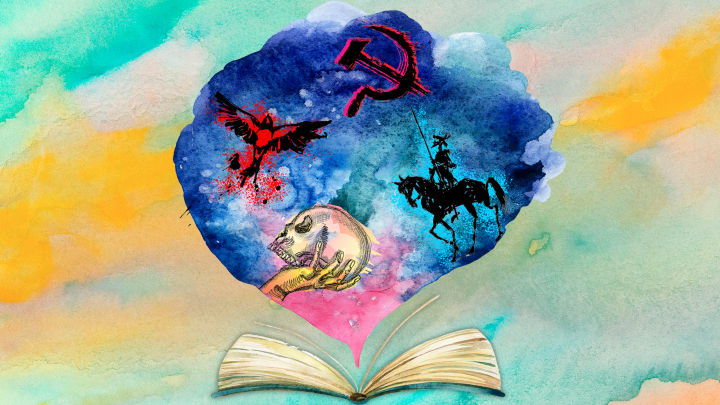
19 Dec 2023
Literature has the power to transform lives, challenge perspectives and shape society. Throughout history, certain classic books have elevated this power to new heights, leaving an indelible impact on culture and collective consciousness. These masterpieces have not only stood the test of time, but have inspired generations of writers to tell powerful stories and question the world around them. Let's explore some of these literary gems that have changed the world.
The Bible (1st century BC - 1st century AD)
The Bible, considered sacred by millions of people around the world, has had a monumental impact on history and culture. Composed of a collection of religious, literary, and historical texts, the Bible has influenced Western morality, law, and art. His narrative has provided inspiration for countless works of literature and has shaped the worldview of entire generations.
Don Quixote of La Mancha by Miguel de Cervantes (1605, 1615)
Cervantes' masterpiece, "Don Quixote of La Mancha", is considered the first modern novel and has left an indelible mark on Western literature. The story of the dreamy knight fighting windmills and the exploration of reality versus fantasy have influenced the way we see and understand the narrative. His satire and keen observation of the human condition have inspired writers for centuries.
From the Earth to the Moon by Jules Verne (1865)
Jules Verne, a pioneer in science fiction, wrote "From the Earth to the Moon" at a time when space travel was barely a dream. His bold and creative vision of a trip to the moon captured people's imaginations and inspired generations of writers and scientists. His ability to anticipate the future and explore the limits of the imagination has left a lasting impact on literature and science.
To Kill a Mockingbird by Harper Lee (1960)
Published at the height of the civil rights movement in the United States, "To Kill a Mockingbird" by Harper Lee addresses issues of race and injustice in the American South. The narrative of attorney Atticus Finch defending a black man wrongly accused of raping a white woman highlights the fight for equality and justice. The novel has influenced social conscience and inspired generations of writers committed to justice and human rights.
1984 by George Orwell (1949)
George Orwell's visionary dystopia, "1984," has influenced literature and discussions about surveillance and state power. The novel anticipates themes such as the manipulation of truth and the loss of privacy, which have resonated throughout time. "1984" It remains a vivid reminder of the importance of individual freedom and has inspired writers who explore themes related to government control and resistance.
Pride and Prejudice by Jane Austen (1813)
"Pride and Prejudice" by Jane Austen is a masterful example of the romantic and social novel. Her ability to portray society and her strong female characters have influenced women's writing and the exploration of social dynamics in literature. The novel has been adapted countless times, underscoring its lasting influence.
One Hundred Years of Solitude by Gabriel García Márquez (1967)
García Márquez's masterpiece, "One Hundred Years of Solitude", has changed the way Latin American literature is approached. Its magical realism, rich mythology, and innovative storytelling have influenced writers around the world. The novel has left an indelible mark on contemporary literature and has inspired numerous writers to explore the mix of the real and the fantastic.
Enduring Literary Legacies
These books, and many others, have changed the way we see the world and have left a profound impact on literature and culture. Their ability to stand the test of time and remain sources of inspiration is testament to their enduring importance. Contemporary writers can look back on these masterpieces to learn, be inspired, and continue the legacy of meaningful writing. In doing so, they contribute to the continued evolution of literature and its power to change the world.